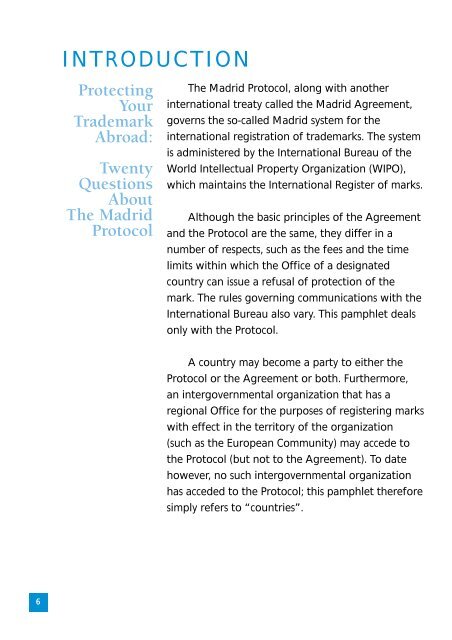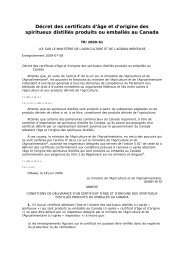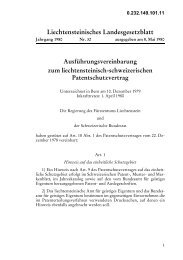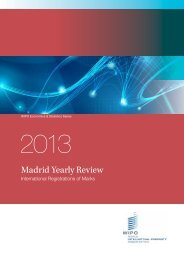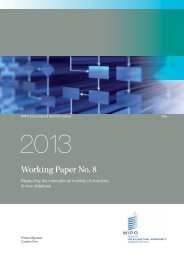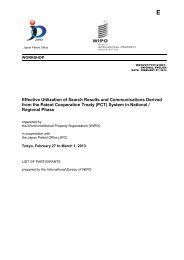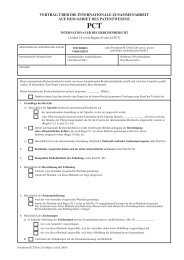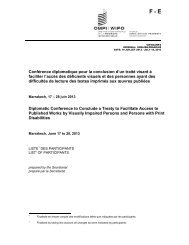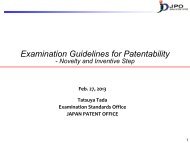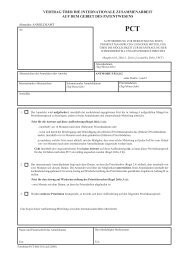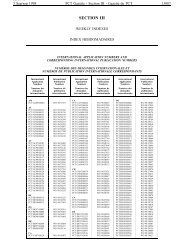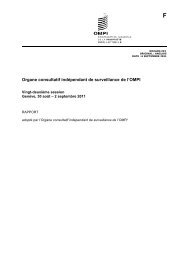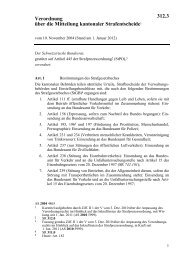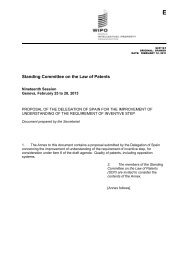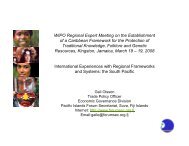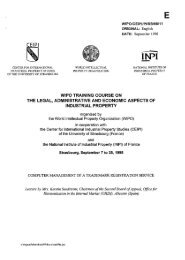Protecting your Trademark Abroad: Twenty Questions About ... - WIPO
Protecting your Trademark Abroad: Twenty Questions About ... - WIPO
Protecting your Trademark Abroad: Twenty Questions About ... - WIPO
Create successful ePaper yourself
Turn your PDF publications into a flip-book with our unique Google optimized e-Paper software.
INTRODUCTION<br />
<strong>Protecting</strong><br />
Your<br />
<strong>Trademark</strong><br />
<strong>Abroad</strong>:<br />
<strong>Twenty</strong><br />
<strong>Questions</strong><br />
<strong>About</strong><br />
The Madrid<br />
Protocol<br />
The Madrid Protocol, along with another<br />
international treaty called the Madrid Agreement,<br />
governs the so-called Madrid system for the<br />
international registration of trademarks. The system<br />
is administered by the International Bureau of the<br />
World Intellectual Property Organization (<strong>WIPO</strong>),<br />
which maintains the International Register of marks.<br />
Although the basic principles of the Agreement<br />
and the Protocol are the same, they differ in a<br />
number of respects, such as the fees and the time<br />
limits within which the Office of a designated<br />
country can issue a refusal of protection of the<br />
mark. The rules governing communications with the<br />
International Bureau also vary. This pamphlet deals<br />
only with the Protocol.<br />
A country may become a party to either the<br />
Protocol or the Agreement or both. Furthermore,<br />
an intergovernmental organization that has a<br />
regional Office for the purposes of registering marks<br />
with effect in the territory of the organization<br />
(such as the European Community) may accede to<br />
the Protocol (but not to the Agreement). To date<br />
however, no such intergovernmental organization<br />
has acceded to the Protocol; this pamphlet therefore<br />
simply refers to “countries”.<br />
6


